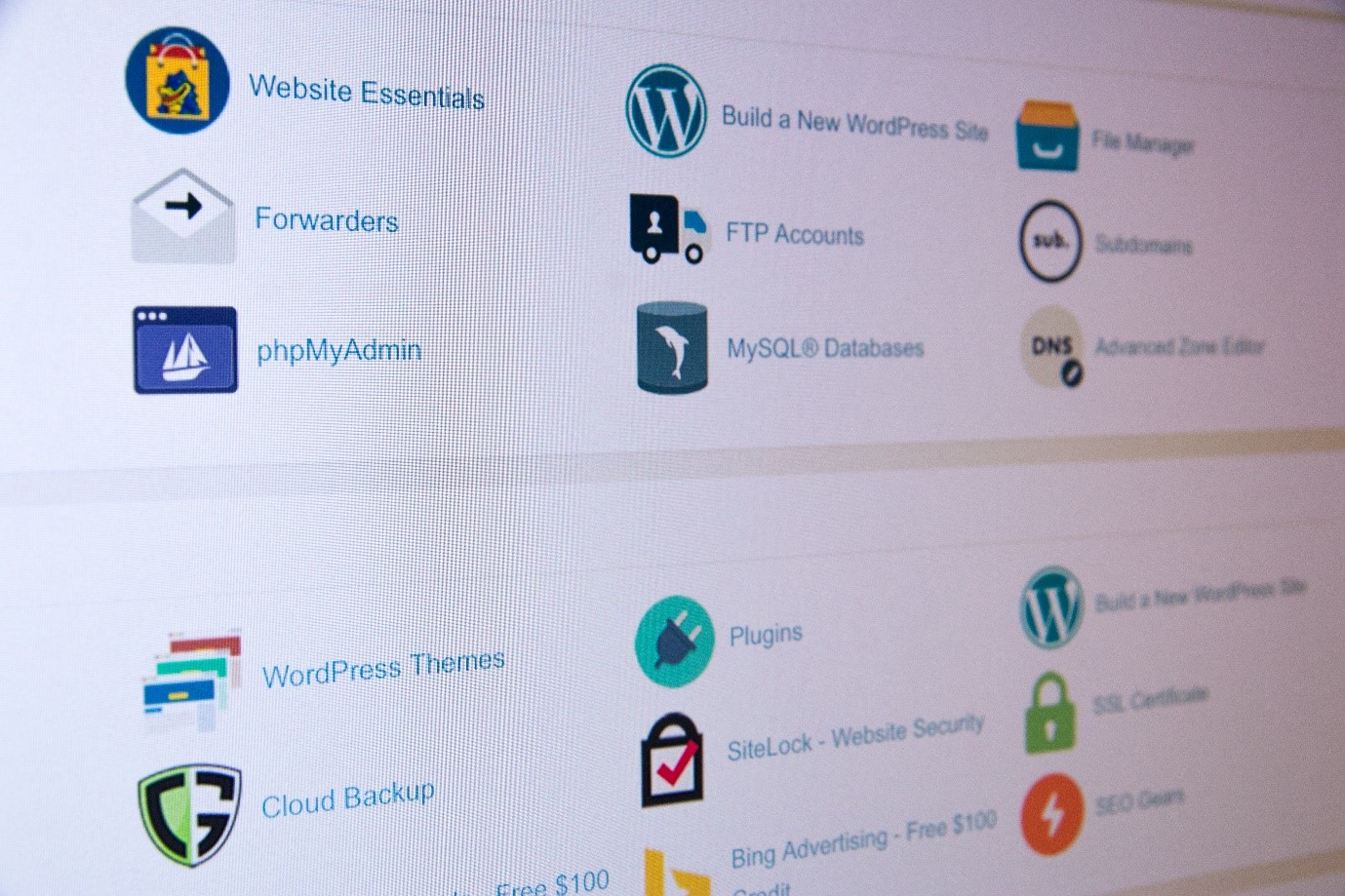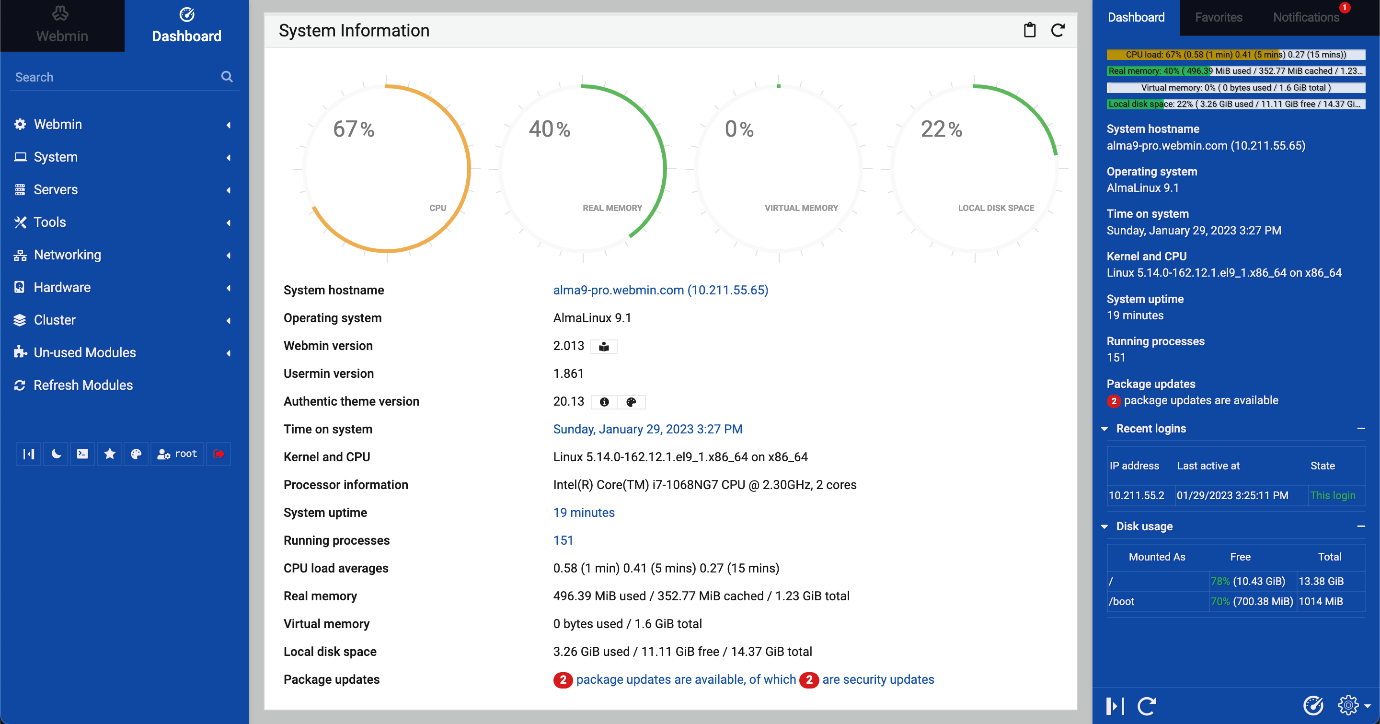
Creating and managing a website is quite challenging, especially if you’re not a tech person. Fortunately, with the advancement of technology, someone figured out how to create online tools for managing a website that everyone can use: Web Hosting Control Panels.
Web hosting control panels are the ultimate beginner-friendly tools to control and manage your website as efficiently as possible.
You might ask, are control panels necessary for managing hosting servers?
No, if you have the technical knowledge to use and manage your hosting package, great; you don’t need to install a control panel.
However, control panels are the way to go if you want an easy-to-use tool with a comprehensive graphical user interface for managing your web services.
Say you’re sold on the idea of using control panels as your non-techy website management assistant; it’s time to find the best one that suits your specific needs.
5 Popular Web Hosting Control Panels
The control panels we mention in this section are some of the best on the market, but you must choose one compatible with your server’s operating system.
- cPanel; Top Choice for Linux-based Web Hosting Management
cPanel’s automated and configurable platform makes it the best control panel for beginners and professionals. The cP University is the best source for beginners to get the most out of this platform. cPanel might be expensive for some users, but in the long run, it is an investment you can’t afford to miss.
Side note:
If you’re concerned about security issues and want to be entirely in charge of your server resources, VPS hosting with cPanel is your best option.
cPanel Advantages:
- Revenue generating tools
- FTP manager
- Easy integration with popular applications, such as phoenixNAP, GoDaddy RoseHosting, etc.
- Easy configuration without coding
- Free SSL Certificate
cPanel Pricing:
$15.99 per month
- Plesk; Best Control Panel for Windows
Plesk is compatible with Windows and Linux, but some users that use Linux servers reported slow performance and multi-server issues. Compared to cPanel, which can only be used on Linux, Plesk is the second-best web-based control panel.
Plesk Advantages:
- Supports Horde & RoundCube webmail
- Supports mass uploading
- Simple dashboard
- Easy integration with popular applications, such as WordPress, Dropbox, MicrosoftOneDrive, Microsoft Azure, Google Drive
- 24/7 Live Support
Plesk Pricing:
$12 per month
- Webmin; Remote Linux/Unix System Administration Tool
Webmin is more of a system configuration tool than a control panel, but since some of its features are identical to a CP, we included it in this section.
Webmin advantages:
- Account management tools
- Easy file transfer via NFS protocol and the Samba file sharing
- Supports multiple servers
- Supports virtual hosts via the Apache Web Server
- Disk management via Disk Quota
- Supports Linux Firewall
Webmin Pricing:
Free
- Ajenti; The Most Lightweight Control Panel
Aside from cPanel, Ajenti is another easy and fast web-based control panel best suited for VPS servers. The best thing about Ajenti is that you can easily access basic server information and manage remote system administration tasks from a web browser remotely.
Ajenti Advantages:
- Manage multiple websites via Ajenti V
- Low memory consumption
- MIT licensed coding
- Easy integration with popular applications, such as WordPress, Jenkins, and Keystone
- Supports virtual hosts
- Powerful plugins for installing web and mail servers
- Easy and fast access to the Linux terminal
- Ajenti Core; reusable web building framework
Ajenti Pricing:
Free
- DirectAdmin; Cheapest Linux-based CP
DirectAdmin is the best control panel for analytical users that love numbers and statistics. DirectAdmin offers the highest level of stability for all types of websites and if you have no experience setting up and using servers, DirectAdmin is the market’s easiest and fastest control panel you can use.
DirectAdmin Advantages:
- Support Webalizer (Web log analysis software)
- Automatic crash recovery
- Easy integration with popular applications, such as RoseHosting, Imunify360, HOSTiQ, MailRoute
- 24/7 Live Support
- Manages up to 100 websites
- Informative guides
DirectAdmin Pricing:
$2 per month (It does have a free version)
Conclusion
A hosting control panel is the best tool to control your hosting package completely. The whole purpose of a hosting control panel is to make it easy for non-technical users to execute advanced and complex system tasks easily.
cPanel is the most popular hosting control panel on the market. Still, unfortunately, it doesn’t support Windows. So if your website is coded on asp.net, Plesk is your best hosting control panel.
Between Plesk and cPanel, the cost-effective option is Plesk if you have 5-10 websites and cPanel if you have more than 30 websites.
If you are on a tight budget but want to use a feature-rich control panel, Webmin is 100% free.
You can run Webmin without needing your primary Web server software, which enhances accessibility and performance. However, we should mention that many users are concerned about the backdoor found in the Webmin source code, which makes the OS settings vulnerable.
The DirectAdmin free version might be a better choice than Webmin, and it is much more user-friendly. DirectAdmin comes in three access levels: Administrator, Reseller, and User; the last one is the best option for managing hosting services.
It seems like the only noteworthy advantage of Ajenti_aside from being free_ is that you can use Ajenti V to access and manage several websites from the same control panel.
The bottom line is that if you’re not tech-savvy, you need a robust and secure control panel to manage your website hosting from 0 to 100. All the control panels we mentioned in this article provide an easy-to-use graphical user interface, but you need to take the necessary precautions in terms of security issues. Some basic security protocols for hosting control panels are:
- SSL (Secure Sockets Layer) encryption
- Web Application Firewall
- DDoS (Distributed Denial of Service) Protection
- Anti-malware software
- SSH (Secure Socket Shell) protocols
- Password-protected RSA keys
Now, how about a final comparison table to bring this topic to the perfect landing?
| Control Panel | VMware Support | Mobile App | Migration | Windows Support |
| cPanel | ✅ | ❌ | ❌ | ❌ |
| Plesk | ✅ | ✅ | ✅ | ✅ |
| Webmin | ❌ | ✅ | ✅ | ❌ |
| Ajenti | ❌ | ❌ | ❌ | ❌ |
| DirectAdmin | ✅ | ✅ | ✅ | ❌ |








